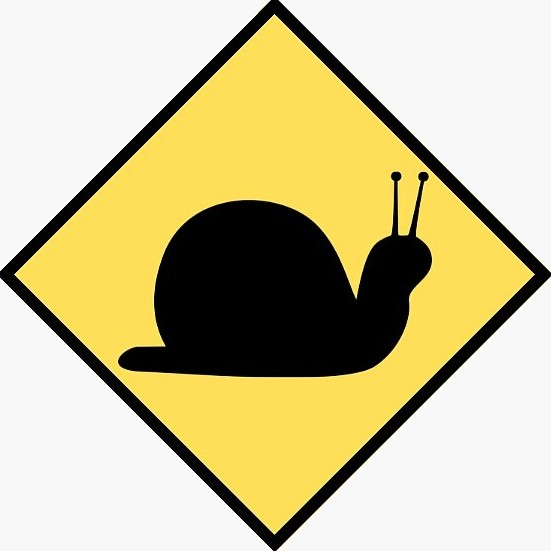- cross-posted to:
- [email protected]
- cross-posted to:
- [email protected]
Total nonsense. If you consume enough of any substance, it will eventually kill you. Aspartame is THE most heavily studied food additive in human history and every well-conducted study has found it to be harmless. You need to consume the equivalent of 125+ cans of Diet soda per day to see an even slightly elevated risk of cancer or any other serious disease. This is disgusting, misprepresentative fear-mongering that will steer people away from low-calorie alternatives to sugary soft drinks, thereby contributing to increasing rates of obesity and diabetes and playing right into the sugar lobby’s interests.
Are you exaggerating or do you have actual sources? I did some searching around and can’t verify your claims.
The choice to reject new information just because something has been studied a lot is a very anti-science take.
People should understand aspartame, and understand sugar, as much as they can and make their own choices for their health.
The 125 can figure came from the methodology used in some of the low quality rat studies frequently cited to demonstrate the dangers of aspartame back in the day. I’ll see if I can find the specific studies.
This page by the National Cancer Institute provides a pretty decent overview of research on a variety of artificial sweeteners. https://www.cancer.gov/about-cancer/causes-prevention/risk/diet/artificial-sweeteners-fact-sheet
One very recent study (Debras et al., 2022) suggested a link between aspartame consumption and cancer, which I suspect is behind the recent hysteria. Pretty much every other high quality study over the past 50 years found no correlation. If aspartame is indeed a dangerous carcinogen, that fact should be clear through epidemiological data alone, like the 2013 study by Marinovich et al. cited in the article. I lend that study and those like it much greater credibility than one-off cohort studies like Debras.
You need to consume the equivalent of 125+ cans of Diet soda per day to see an even slightly elevated risk of cancer or any other serious disease
The report says that 14 cans for a person who is normal weight, but that’s still 5L of diet pop!
Heartburn and stomach upset would probably prevent anyone from consuming that much of this stuff.
I used to have quite the diet coke habit. I would regularly drink 6 cans before noon to wake up, and on weekends when I didn’t need to get to sleep, I probably did often hit 14 cans or more. But I think I even topped out around that 14 can amount because you start getting caffeine side effects and twitching…
If donald trump hasn’t contracted cancer from his diet coke habit it’s probably safe enough
Idk. Even cancer has standards.
So the somatic cells within Mr. Trump split with an unfortunate mutation that leads to out of control growth and they are just like “erm I dunno I think our host/origin is problematic” and apoptosis ensues
Me too.
One can keep hoping.
One thing about aspartame is how insanely sweet it is. I was reading one description where a chemist diluted a very small amount in a liter of water and touched their tongue to the solution. They couldn’t get the taste of it out of their mouth for the whole day. Sugar is sweet, but nowhere near as sweet, and we know full well how terrible its consequences can be.
Sweetness is just a sense, it doesn’t imply anything about the carcinogenic nature of a compound.
This isn’t how taste works either, that just had to do with the molecular shape of aspartame and sugar.
Oh, yeah, don’t get me wrong. I don’t have anything against aspartame, and I far prefer it above sugar in terms of health. Insanely sweet isn’t a bad thing in this case, since you barely consume any for the desired effect. And of course the science shows that even if this link is real, there is no level of consumption of aspartame in its commonly consumed form that is going to be a problem.
They’ve been saying aspartame is carcinogenic for decades now. If further research is needed, then why are food producers still able to use it? Seems to me like if they suspect that it’s carcinogenic, that it should be restricted until they can prove it’s safe for consumption.
Most of the claims of artificial sweeteners being carcinogenic come from the sugar industry, if I’m not mistaken. There are plenty of epidemiological studies they show no increases in cancer among populations that consume artificially sweetened drinks compared to those who don’t.
They have never said it is carcinogenic. They’re saying it may be carcinogenic, due to a tentative correlation with hepatocellular carcinoma. And they’re also saying it appears to be safe if you’re consuming a reasonable amount of it.
The problem is that it’s always depending on the dose.
Fictional example: You can show an increased cancer risk in animal testing if amount x is consumed regularly. But then X is also the equivalent to 20% your body weight in sugar per day.
So now you don’t just suspect it’s carcinogenic, you know. But it’s still completely irrelevant when used as an ingredient in food obviously.
That’s basically like saying we need more studies on the toxicity of water as we know it is indeed toxic if you consume too much.
Because you would need to drink at least 24 cans of diet soda every day, probably more like 36, for an extended period of time, for there to be any significant risk.
It is safe for consumption at the levels that any sane person would ever consume.
They’ve been saying aspartame is carcinogenic for decades now.
Thing is, “they” (scientists) haven’t. The general public just kind of assume it is because “unnatural”. Study after study has not shown any effect, with this study being notable mainly because it does.
Aspartame is gross anyway. Makes me mouth-sad.
I find the taste of it utterly revolting. it’s like a sweet imposter, and my mouth says, “no!” It tastes somewhat metallic to me. I prefer stevia. although I don’t normally use sweeteners in stuff like coffee or tea. I avoid soft drinks in general, preferring fruit juice if I drink something other than water or milk.
Just don’t let beverage companies fool you. Fruit juice’s sugar content puts it closer to pop.
i usually get my juice fresh rather than from a bottle
Regardless, the problem isn’t the bottle or the freshness. It’s that the juice is being processed to remove it from its matrix of fiber and other nutrients.
Even if you just juice an orange at home and don’t strain it?
fresh-squeezed juice still has pulp. are you going to keep going on forever just to keep criticizing?
people like you are exhausting.
With tea and coffee, I eschew sweeteners entirely. A well made coffee or tea is delicious without sweetening.
I recently went on a keto diet, and my favorite non sugar sweetener is definitely erythritol plus monkfruit extract. I haven’t tried stevia but I’ve heard good things!
I’ve just let myself get used to it. Like with coffee or beer, it’s a bit of an acquired taste. I’d rather be drinking that than sugary beverages.









